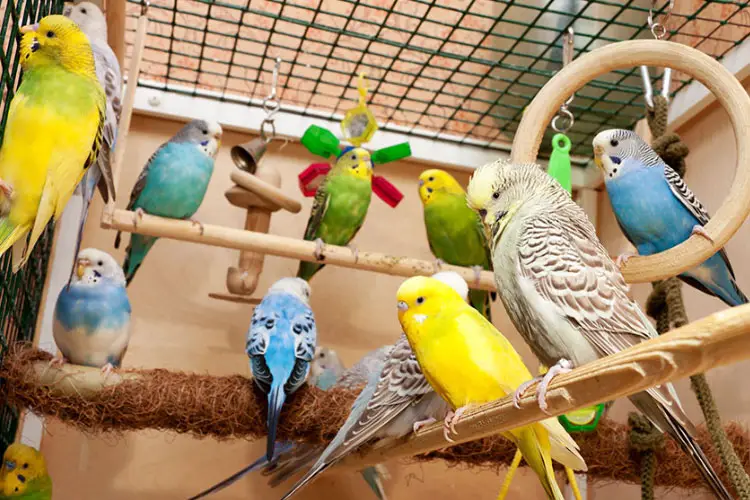Budgies are among the most brilliant pet birds in the parrot family. And like most pet bids, they are also social and friendly. But one common question every bird enthusiast asks is given below.
Are budgies good for beginners? The answer is yes. Budgies are an excellent choice for beginners because they are relatively inexpensive to buy, care for, and feed than larger birds. And thanks to their high intelligence level, these social birds are easy to tame and train how to talk.
Looking to learn more about these birds for beginners, including how to care for them? Stay here.
Are Budgies Good For Beginners?
Yes. Also known as parakeets or budgerigars, budgies are considered good starter birds for any pet enthusiast. This is perhaps because they are easier to maintain than larger parrots. Of course, you will find other parrot species excellent for beginners, such as the cockatiels. However, budgies are more popular and for many good reasons.
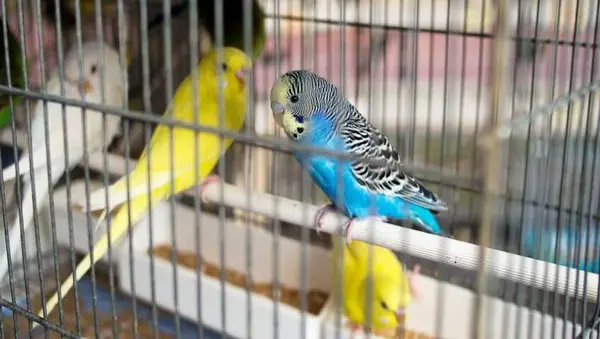
But before we look at these reasons, let’s learn some facts about these feathered friends. Here is a table containing everything you need to know about these affectionate birds.
| About Budgies | Biological Facts |
| Origin | Australia |
| Varieties | American and English budgie |
| Colors | Variety of colors up to 13 |
| Size | 6 to 8 inches |
| Weight | 1 to 1.4 oz |
| Average lifespan | 5 to 10 years in captivity |
| Diet | At least 75% pellets and 10-15% fruits and vegetables |
So then, what makes parakeets an excellent choice for beginners and not other breeds of parrots? Let’s find out.
Low Cost And Maintenance
Budgies have a minimal list of requirements compared to most bird species, making them easy to care for. Even better, these aviary birds are inexpensive since the average purchasing cost of one pet budgie ranges between $10 and $35.
Easy To Tame
If you acquire your pet budgie while still young, you will have the easiest time taming it. It could take you a week to finger-train your bird. This is perhaps because these popular birds are naturally playful.
Highly Social
Parakeets love interacting with their pet owners and are also great with children, thanks to their friendly nature. Also, these pet birds bond quickly with humans, thanks to their affectionate personalities.
Very Intelligent
Despite their small size, budgerigars are known for being intelligent pet birds. Therefore, they can quickly learn many words and phrases, making training easy.
Are Budgies Easy to Care For?
Yes. This explains why most aviculturists consider these playful birds an excellent pet option for beginners. Because you see, after buying the cage, toys, and the extra accessories they need, not much more will be required.
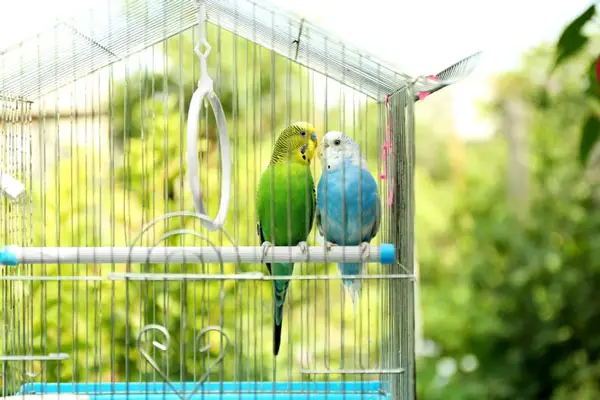
All you’ve got to think about is keeping your bird’s cage clean and providing them with fresh water and food every day. You will also need to provide your pet bird with a warm bath 2-3 times per week.
At What Age Should You Get a Budgie?
By 8 weeks old, budgies are usually fully weaned and can eat independently. Therefore, the best time to get a parakeet is when the birds are around 8-12 weeks old.
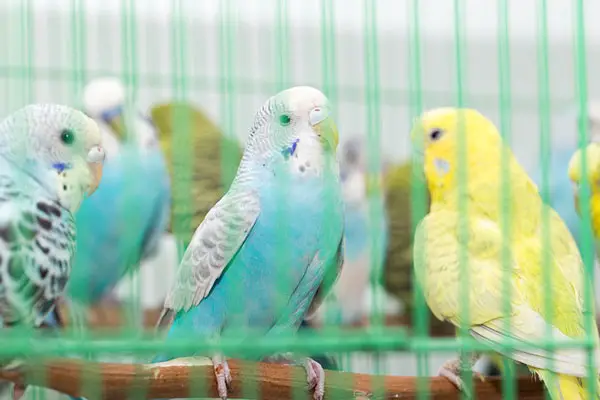
A budgie less than 8 weeks old and not weaned can be a lot of work to take care of and train. This is because you must hand-feed the bird formula every 3-4 hours. Fortunately, most American parakeets sold in major pet stores are usually over 8 weeks old.
Any Must-Know Things Before Getting a Budgie?
Since budgies are suitable for beginners, there are several things you should know before you adopt a parakeet. These include:
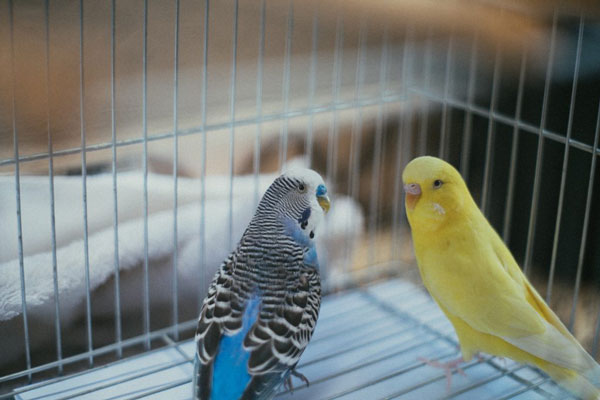
Also read: Can Budgies Eat Pomegranate?
Diet
Your bird’s diet should contain around 75-80% of pellets because most seed mixes are not nutritionally complete.
Cage size
English budgies are very energetic and playful. Therefore, the minimum cage size for your pet bird should be 27 x 14 x 19 inches. The cage must also contain a variety of perches.
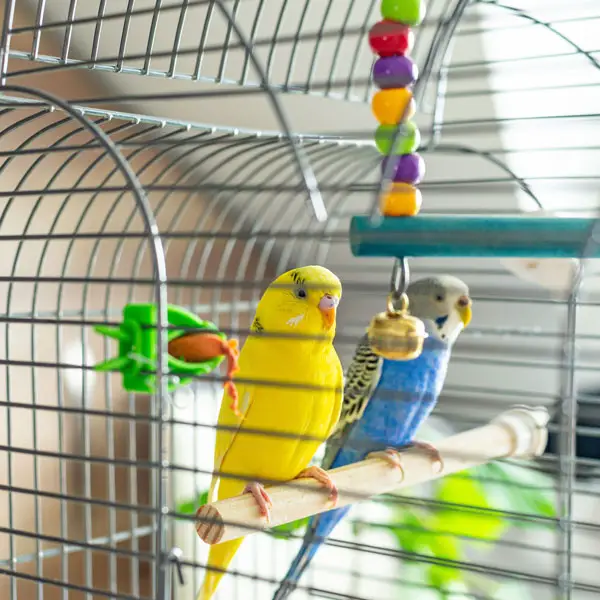
Require plenty of exercises
These beginner birds are very active and require lots of mental stimulation. Therefore, you must let them out of their cage every day. This will also protect the budgies from obesity.
Prone to health issues
Budgerigars are prone to various medical disorders like obesity, malnutrition, egg-binding, goiter, and fatty liver disease. Most of these common health issues are contributed mainly by not feeding your bird a balanced diet.
What You Must Never Do With A Budgie
Keeping your English budgies safe and out of harm’s way is essential as a first-time bird owner. Below are things you should not do with your beloved pet.
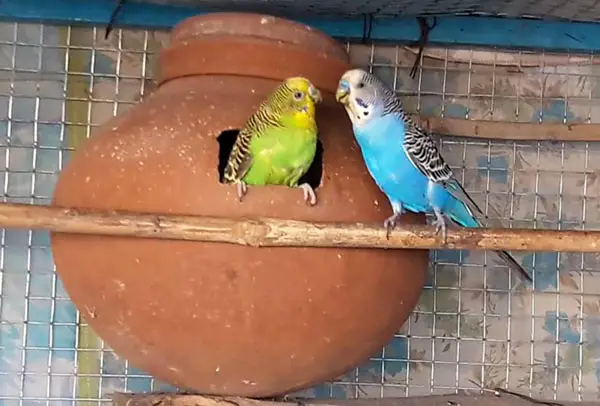
- Don’t expose your budgerigar to extreme temperature changes, whether cold or hot.
- Perfumes, scented candles, air fresheners, and aerosol sprays are deadly to budgies’ respiratory systems.
- Cigarettes and any kind of smoke are toxic to budgies.
- Never use non-stick or Teflon cookware near your pet birds.
- Saliva from humans and animals can be dangerous to these birds since it contains bacteria.
- Always move your hands gently around your budgie rather quickly to avoid scaring your colorful bird.
- Never allow your parakeet to fly around the house while the fans are on. The intense air could kill your bird.
Related: Why Is My Budgie Not Eating?
FAQs
Before we conclude, let’s quickly look at frequently asked questions about budgies being suitable for beginners and wonderful companions.
You should not expect much. During the first days, your budgie will stay in the cage as it tries to get used to the new environment. And with time, it will start chirping and hopping on its perch before it begins bonding with you.
Absolutely. Like most pets, budgies hunger for lots of love and attention from their owners. Therefore, your bird will not mind being held and cuddled most of the time.
Outro
Buggies are arguably the best pets for beginners and for several good reasons, including being low cost and easy to maintain. Even better, these adorable birds are more accessible to care for than most birds, such as the Amazonian parrots.
However, the best age to get a parakeet is between 8 and 12 weeks when they are fully weaned. That said, before adopting a budgie, there are things to keep in mind, so you don’t endanger your pet’s life.
